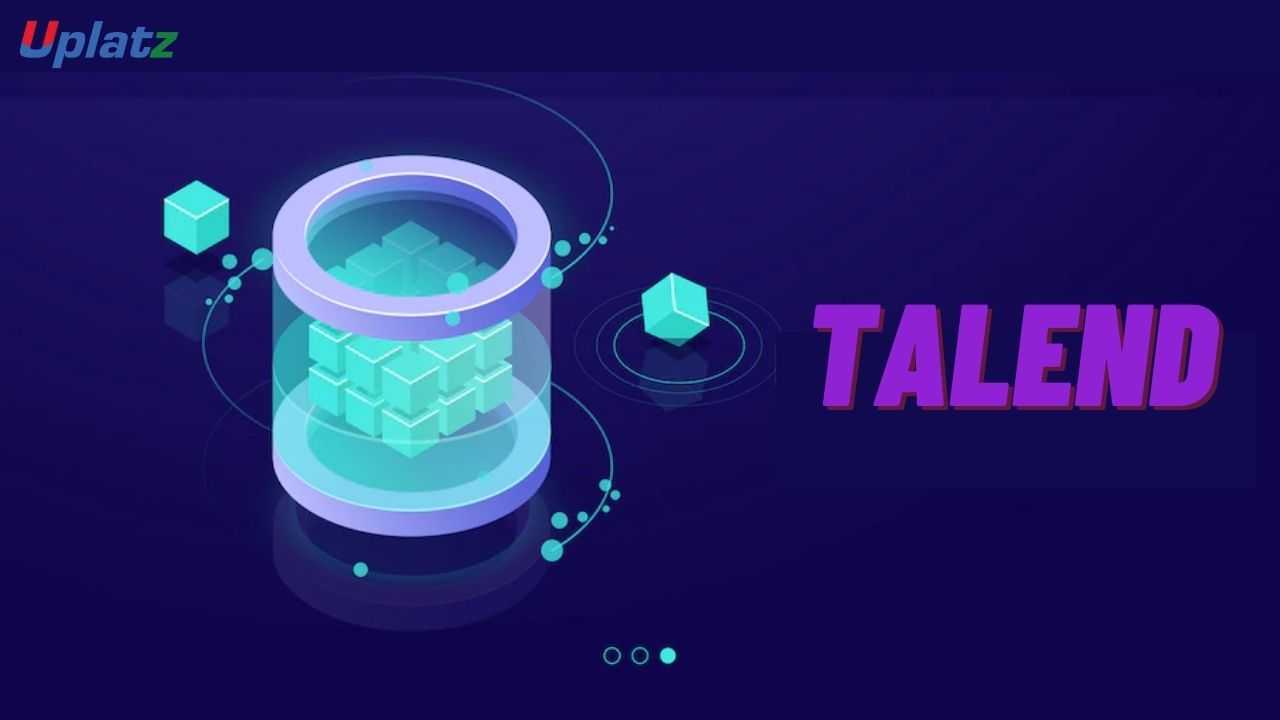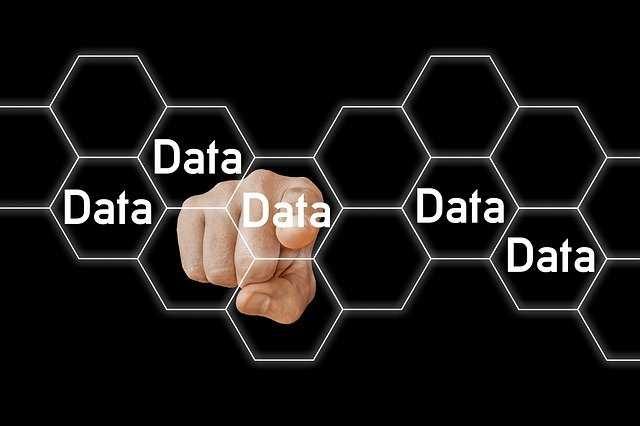Bundle Course - ETL Tools (Talend - SAP Data Services - SQL)
You will learn about Datawarehousing concepts and top ETL tools such as Talend & SAP BODS. Acquire data integration skills and become a Data Engineer.Preview Bundle Course - ETL Tools (Talend - SAP Data Services - SQL) course
Price Match Guarantee Full Lifetime Access Access on any Device Technical Support Secure Checkout Course Completion Certificate 88% Started a new career
BUY THIS COURSE (
88% Started a new career
BUY THIS COURSE (USD 27 USD 69 )-
 90% Got a pay increase and promotion
90% Got a pay increase and promotion
Students also bought -
-

- Career Path - IT Consultant
- 200 Hours
- USD 45
- 5851 Learners
-

- Talend
- 20 Hours
- USD 17
- 117 Learners
-

- SAP Data Services (BODS)
- 25 Hours
- USD 17
- 216 Learners

Bundle Course - ETL Tools bundle course covers the following DW/ETL tools and technologies:
1) Talend
2) SAP Data Services (SAP BODS)
3) PL/SQL
ETL stands for Extract, Transform, Load. ETL Tools are software designed to support ETL processes: extracting data from disparate sources, scrubbing data for consistency and quality, and consolidating this information into data warehouses. If implemented correctly, ETL tools simplify data management strategies and improve data quality by providing a standardized approach to intake, sharing, and storage. It is a three-step data management process that extracts unstructured data from a variety of sources, transform it into a format that meets the business's operational and analytical needs, and loads it to a target destination. An ETL tool is a piece of software that automates this process by performing three key tasks: Data extraction from the underlying data sources. To satisfy the data model of enterprise repositories such as data warehouses, data transformation is required. Data is being loaded into the desired location.
Informatica, SSIS, OBIEE, Talend, DataStage, and Pentaho are among the top ETL tools covered in our ETL tools training curriculum. Real-world projects in data warehousing, data integration, Hadoop connection, data modelling, SCD, and data schema will be your focus.This ETL tools course from Uplatz will give you a leg up on the competition when it comes to extract, transform, and load procedures for the Business Intelligence sector. This comprehensive ETL course contains six of the most powerful ETL tools, and upon completion, you will be a certified ETL specialist.
In each data warehousing and business intelligence scenario, the ETL procedure is essential. Getting the ETL process correctly has a direct impact on the type of data that will be put into the data warehouse, which in turn has a direct impact on the quality of BI produced and, ultimately, the business insights gained. This course is a one-stop shop for learning how to use some of the best ETL tools on the market today.
ETL tools can be grouped into four categories based on their infrastructure and supporting organization or vendor. These categories — enterprise-grade, open-source, cloud-based, and custom ETL tools.
1. Enterprise Software ETL Tools
Enterprise software ETL tools are developed and supported by commercial organizations. These solutions tend to be the most robust and mature in the marketplace since these companies were the first to champion ETL tools. This includes offering graphical user interfaces (GUIs) for architecting ETL pipelines, support for most relational and non-relational databases, and extensive documentation and user groups.
Though they offer more functionality, enterprise software ETL tools will typically have a larger price tag and require more employee training and integration services to onboard due to their complexity.
2. Open-Source ETL Tools
With the rise of the open-source movement, it’s no surprise that open-source ETL tools have entered the marketplace. Many ETL tools today are free and offer GUIs for designing data-sharing processes and monitoring the flow of information. A distinct advantage of open-source solutions is that organizations can access the source code to study the tool's infrastructure and extend capabilities. However, open-source ETL tools can vary in upkeep, documentation, ease of use, and functionality since they are not usually supported by commercial organizations.
3. Cloud-Based ETL Tools
Following the widespread adoption of cloud and integration-platform-as-a-service technologies, cloud service providers (CSPs) now offer ETL tools built on their infrastructure. A specific advantage of cloud-based ETL tools is efficiency. Cloud technology provides high latency, availability, and elasticity so that computing resources scale to meet the data processing demands at that time. If the organization also stores its data using the same CSP, then the pipeline is further optimized because all processes take place within a shared infrastructure. A drawback of cloud-based ETL tools is that they only work within the CSP's environment. They do not support data stored in other clouds or on-premise data centers without first being shifted onto the provider's cloud storage.
4. Custom ETL Tools
Companies with development resources may produce proprietary ETL tools using general programming languages. The key advantage of this approach is the flexibility to build a solution customized to the organization's priorities and workflows. Popular languages for building ETL tools include SQL, Python, and Java. The largest drawback of this approach is the internal resources required to build out a custom ETL tool, including testing, maintenance, and updates. An additional consideration is the training and documentation to onboard new users and developers who will all be new to the platform.
After completing this course, you will be able to command premium salaries at major MNCs across the world in the ETL, data warehousing, and business intelligence sectors.
Course/Topic 1 - Talend - all lectures
-
Lecture 1 - Talend Introduction
-
Lecture 2 - Architecture and Installation - part 1
-
Lecture 3 - Architecture and Installation - part 2
-
Lecture 4 - Architecture and Installation - part 3
-
Lecture 5 - File - Java - Filter Components
-
Lecture 6 - tAggregateRow - tReplicate - tRunJob Components - part 1
-
Lecture 7 - tAggregateRow - tReplicate - tRunJob Components - part 2
-
Lecture 8 - Join Components - part 1
-
Lecture 9 - Join Components - part 2
-
Lecture 10 - Sort Components
-
Lecture 11 - Looping Components
-
Lecture 12 - Context - part 1
-
Lecture 13 - Context - part 2
-
Lecture 14 - Slowly Changing Dimensions (SCD)
-
Lecture 15 - tMap Components - part 1
-
Lecture 16 - tMap Components - part 2
-
Lecture 17 - tMap Components - part 3
-
Lecture 18 - tMap Components - part 4
-
Lecture 19 - Talend Error Handling
-
Lecture 20 - Audit Control Jobs
-
Lecture 21 - How to use tJAVA components with scenario
-
Lecture 22 - Talend Big Data Hadoop Introduction and Installation
-
Lecture 23 - Talend HIVE Components - part 1
-
Lecture 24 - Talend HIVE Components - part 2
-
Lecture 25 - Talend HDFS Components
-
Lecture 26 - Talend TAC
Course/Topic 2 - SAP Data Services (BODS) - all lectures
-
SAP BO Data Services consists of a UI development interface, metadata repository, data connectivity to source and target system and management console for scheduling of jobs. This introductory tutorial gives a brief overview of the features of SAP BODS and how to use it in a systematic manner.
-
In this beginner's SAP BODS tutorial, you will learn, History of SAP BODS, SAP Data Services Advantages and the disadvantages of SAP BODS.
-
SAP BODS is an ETL tool for extracting data from disparate systems, transform data into meaningful information, and load data in a data warehouse. It is designed to deliver enterprise-class solutions for data integration, data quality, data processing and data profiling.
-
Data Services Designer is a developer tool, which is used to create objects consisting of data mapping, transformation, and logic. It is GUI based and works as a designer for Data Services.
-
SAP BO Data Services (BODS) is an ETL tool used for data integration, data quality, data profiling and data processing. It allows you to integrate, transform trusted data-to-data warehouse system for analytical reporting.
-
This tutorial will help all those students who want to create their own local repository, configure a job server, start basic job development and execute the job to extract data from source systems and load the data to target systems after performing transformations, look-ups and validations.
-
This tutorial will help all those readers who want to create their own local repository, configure a job server, start basic job development and execute the job to extract data from source systems and load the data to target systems after performing transformations, look-ups and validations.
-
Learn SAP Business Objects Data Services from basic concepts to advanced concepts starting from introduction, architecture, data services, file formats, data loading, etc.
-
SAP BODS (Business Object Data Services) is an SAP DWH (Data Warehouse) product, where DWH is an enterprise level centralized reporting system. Data services is an end-to-end data integration, Data management, Test analysis software.
-
Before you start this SAP BODS tutorial, you should have a basic knowledge of SAP system, RDBMS, Data warehouse and Business Intelligence (BI).
-
SAP Bods training tutorials as per syllabus wise so beginners can easily learn SAP Business Object Data Services (Bods) step by step with real time project scenarios.
-
SAP BODS combines industry data quality into one platform. BODS provides a single environment for development, run-time, management, security, and data connectivity.
-
SAP BODS is an ETL tool that delivers a single enterprise-class solution for data integration, data quality, and data profiling that permits you to integrate, transform, improve, and provide trusted data that supports important business processes and enables sound decisions.
-
It provides a GUI that allows us to efficiently produce a job that mine data from various sources, convert that data to meet the business requirements of an organization, and load data into a single place.
-
SAP BO Data Services (BODS) is an ETL tool used for data integration, data quality, data profiling and data processing. It allows you to integrate, transform trusted data-to-data warehouse system for analytical reporting.
Course/Topic 3 - Oracle PL/SQL - all lectures
-
Overview of PL/SQL
-
Declaring PL/SQL Variables
-
Writing Executable Statements
-
Interacting with Oracle DB Server
-
Writing Control Structure
-
Working with Composite Data Types
-
Using Explicit Cursors
-
Handling Exceptions
-
Creating Procedures
-
Creating Functions
-
Creating Packages
-
Working with Packages
-
Using Oracle-supplied Packages in Application Development
-
Using Dynamic SQL
-
Design considerations for PL/SQL Code
-
Creating Triggers - Creating Compound, DDL, and Event Database Triggers
-
Using PL/SQL Compiler
-
Managing PL/SQL Code
-
Managing Dependencies
•Learn about business Intelligence & Data warehousing
•RDBMS Concepts & QA Lifecycle.
•Learn about Data Warehouse WorkFlow and comparison between Database Testing and Data Warehouse Testing
•Understand different ETL Testing scenarios
•Perform data Checks using SQL and understand the scope of BI Testing.
The ETL Tools Certification ensures you know planning, production and measurement techniques needed to stand out from the competition.
ETL tools collect, read, and migrate large volumes of raw data from multiple data sources and across disparate platforms. They load that data into a single database, data store, or data warehouse for easy access.
Microsoft SQL Server is a product that has been used to analyze data for the last 25 years. The SQL Server ETL (Extraction, Transformation, and Loading) process is especially useful when there is no consistency in the data coming from the source systems.
Although Python is a viable choice for coding ETL tasks, developers do use other programming languages for data ingestion and loading.
The Oracle Certified Associate - Oracle9i Database Administrator (OCA) certification is most common among ETL Developers. This certification is awarded by the Oracle Corporation.
Uplatz online training guarantees the participants to successfully go through the ETL Tools certification provided by Uplatz. Uplatz provides appropriate teaching and expertise training to equip the participants for implementing the learnt concepts in an organization.
Course Completion Certificate will be awarded by Uplatz upon successful completion of the ETL Tools online course.
The ETL Tools draws an average salary of $100,080 per year depending on their knowledge and hands-on experience. ETL Tools job roles are in high demand and make a rewarding career.
ETL developer jobs guarantee a good future growth if and only if you make a good and sensible decision after finishing your early stage of developer career.
An ETL developer's role focuses on creating data warehousing systems for companies and ensuring they are running properly. A mobile developer uses their computer science background to create software for mobile devices.
Note that salaries are generally higher at large companies rather than small ones. Your salary will also differ based on the market you work in.
The following are the job titles:
● Data modeling.
● Consulting.
● Data Analyst.
● Scheduling.
● Informatica.
● Stored procedures.
● Unit testing.
● Pentaho.
1) What is ETL?
In data warehousing architecture, ETL is an important component, which manages the data for any business process. ETL stands for Extract, Transform and Load. Extract does the process of reading data from a database. Transform does the converting of data into a format that could be appropriate for reporting and analysis. While, load does the process of writing the data into the target database.
2) Explain what are the ETL testing operations includes?
ETL testing includes
· Verify whether the data is transforming correctly according to business requirements
· Verify that the projected data is loaded into the data warehouse without any truncation and data loss
· Make sure that ETL application reports invalid data and replaces with default values
· Make sure that data loads at expected time frame to improve scalability and performance
3) Mention what are the types of data warehouse applications and what is the difference between data mining and data warehousing?
The types of data warehouse applications are
· Info Processing
· Analytical Processing
· Data Mining
Data mining can be define as the process of extracting hidden predictive information from large databases and interpret the data while data warehousing may make use of a data mine for analytical processing of the data in a faster way. Data warehousing is the process of aggregating data from multiple sources into one common repository
4) What are the various tools used in ETL?
· Cognos Decision Stream
· Oracle Warehouse Builder
· Business Objects XI
· SAS business warehouse
· SAS Enterprise ETL server
5) What is fact? What are the types of facts?
It is a central component of a multi-dimensional model which contains the measures to be analysed. Facts are related to dimensions.
Types of facts are
· Additive Facts
· Semi-additive Facts
· Non-additive Facts
6) Explain what are Cubes and OLAP Cubes?
Cubes are data processing units comprised of fact tables and dimensions from the data warehouse. It provides multi-dimensional analysis.
OLAP stands for Online Analytics Processing, and OLAP cube stores large data in muti-dimensional form for reporting purposes. It consists of facts called as measures categorized by dimensions.
7) Explain what is tracing level and what are the types?
Tracing level is the amount of data stored in the log files. Tracing level can be classified in two Normal and Verbose. Normal level explains the tracing level in a detailed manner while verbose explains the tracing levels at each and every row.
8) Explain what is Grain of Fact?
Grain fact can be defined as the level at which the fact information is stored. It is also known as Fact Granularity
9) Explain what factless fact schema is and what is Measures?
A fact table without measures is known as Factless fact table. It can view the number of occurring events. For example, it is used to record an event such as employee count in a company.
The numeric data based on columns in a fact table is known as Measures
10) Explain what is transformation?
A transformation is a repository object which generates, modifies or passes data. Transformation are of two types Active and Passive









